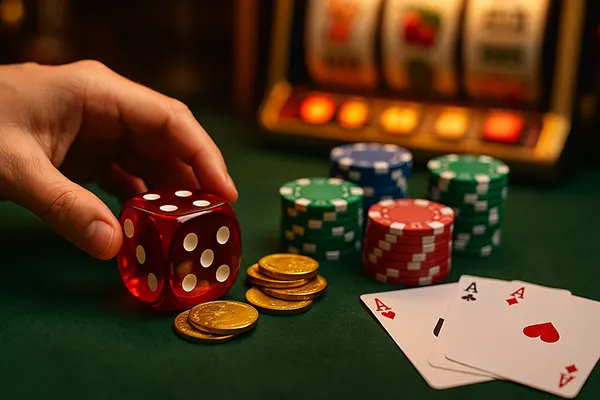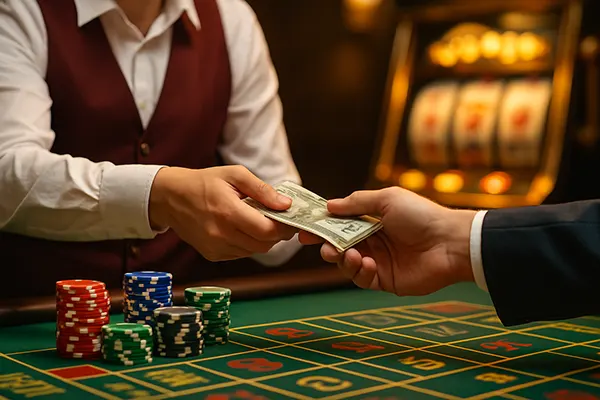
Emotional Mathematics in Gambling: How to Avoid the “Feeling of Winning” Trap
The psychology of gambling is deeply intertwined with emotions, perception, and cognitive biases. One of the most powerful psychological traps that players face is the so-called “feeling of winning”—a sensation that often overrides logic and leads to excessive risk-taking. In this article, we will explore how this emotional illusion works, what mathematical principles underpin gambling behaviour, and how to remain in control while playing.
The Illusion of Control and Near-Wins
Players often overestimate their chances of success due to a cognitive bias known as the illusion of control. This bias creates a false sense of influence over random outcomes, especially when the results appear “close” to a win. Slot machines and roulette wheels are deliberately designed to encourage this thinking by displaying near-misses and celebratory sounds even in minor or losing outcomes.
Near-wins activate reward-related areas of the brain in a manner similar to actual wins, according to neuroscientific studies. This encourages players to keep playing, under the false belief that a win is imminent. This mechanism is not accidental—it’s deeply embedded in the design of many popular casino games.
By understanding that near-wins are statistically irrelevant, players can reduce the temptation to continue playing after an apparent “almost” win. True random outcomes do not retain memory; each spin or deal is independent of the last.
The Mathematics Behind Risk Perception
Every casino game is governed by mathematical probabilities and built-in house edges. These mechanisms ensure that the operator maintains a long-term statistical advantage, regardless of short-term outcomes. Yet, the “feeling of winning” can distort a player’s understanding of these odds.
For example, a player might win three spins in a row on a slot and start to believe they are on a “hot streak.” Mathematically, each spin has the same probability distribution as the last—winning streaks are natural clusters in randomness, not predictive patterns.
When players fail to grasp this principle, they begin to overinvest emotionally and financially. Understanding expected value (EV) and variance can help players remain grounded in rational decision-making instead of emotional highs.
Emotional Anchors and Loss Aversion
Losses are often perceived more intensely than wins of the same size—a principle known as loss aversion. This can lead players to chase losses, hoping to recover what was lost, even when the rational choice would be to stop playing. Emotional anchors, such as the memory of a past big win, can also skew future expectations.
This psychological distortion can be amplified by “sunk cost fallacy”—the belief that continuing to play justifies previous losses. Players may convince themselves that one more bet could reverse the damage, ignoring the mathematical reality that continued play increases cumulative loss exposure.
To avoid this trap, players should establish loss limits and stick to them, understanding that emotions are unreliable guides in risk-based environments. Recognising when emotions are influencing decisions is the first step toward regaining control.
How Reward Systems Reinforce Risk
Casinos and gambling services often use variable-ratio reinforcement schedules—the same used in psychological conditioning. Wins are unpredictable and intermittent, which makes the behaviour highly addictive. This system fuels emotional dependence on uncertain outcomes.
Bonuses, loyalty points, and near-win feedback loops all work together to sustain engagement. These tools create a compelling experience but blur the distinction between entertainment and problematic behaviour. Understanding how reward systems manipulate risk perception can help players develop healthy boundaries.
When players become aware of these external reinforcements, they can create strategies to counteract them, such as taking breaks, setting time limits, or declining promotions that encourage prolonged play.

Strategies to Stay Rational While Playing
Maintaining emotional control in gambling requires self-awareness and discipline. The first step is recognising that emotions such as excitement, frustration, or even overconfidence can distort judgement. Players who can identify their emotional state are more likely to make rational decisions.
Using practical tools like pre-committed betting budgets, self-exclusion options, and gameplay timers helps manage exposure. These measures are often supported by responsible gaming policies and are available in most licensed gambling environments.
Tracking results, reviewing betting behaviour, and taking regular breaks are additional ways to stay connected to reality. Rational play stems from the consistent application of objective thinking over impulsive reactions.
When to Walk Away
One of the hardest skills in gambling is knowing when to stop. Emotional triggers can make players believe that “the next win” is inevitable or that they’re due for a big break. However, understanding probability teaches us that each bet is isolated, and long-term profit is statistically unlikely for players.
Setting strict stop-loss and win-limit rules before play begins—and adhering to them regardless of emotion—is crucial. These rules act as a safeguard against escalating commitment and help maintain a balanced, entertainment-first approach to gambling.
Ultimately, sustainable gambling is not about chasing the highs but about engaging responsibly, understanding the risks, and accepting the limits of chance-based systems.
